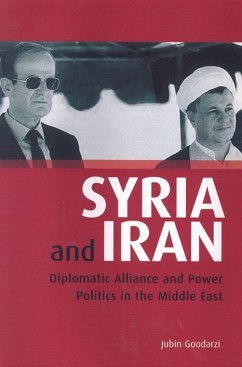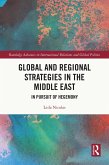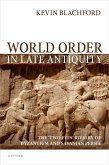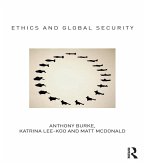The enduring alliance between Iran and Syria which came about after Iran's 1979 Revolution proved to be a feature of the Middle East's political landscape in the 20th and early 21st centuries. Moreover, its impact in moulding events and bringing about major changes in this troubled region proved enormously significant.
Jubin M. Goodarzi provides us with the first in-depth study on the Syrian-Iranian nexus which traces the origins and development of the strategic partnership between Damascus and Tehran from 1979 until the present. He argues that contrary to prevailing views (due in large part to the authoritarian and unpopular nature of the Syrian and Iranian regimes), the alliance between them was conceived as essentially defensive in nature. He puts forth an empirical survey with a chronology of events, and analyses the key phases in the evolution of the alliance. In the process he explains their significance, both in terms of how they affected bilateral relations between the two states and their regional implications.
Through careful research and analysis, Goodarzi reveals linkages between major events in the Middle East and crucial decisions that were made in Tehran and Damascus; particularly ones that have been overlooked or ignored by regional analysts and scholars. These include the impact of the Israeli invasion of Lebanon in 1982 and the subsequent Syrian-Iranian consultations on Iran's position regarding the war with Iraq; the effects of US-Iraqi actions in the Persian Gulf in 1988 and Iran's moves in Lebanon against the wishes of Syria. Goodarzi analyses the stability and security of this partnership and assesses its prospects for the future.
Jubin M. Goodarzi provides us with the first in-depth study on the Syrian-Iranian nexus which traces the origins and development of the strategic partnership between Damascus and Tehran from 1979 until the present. He argues that contrary to prevailing views (due in large part to the authoritarian and unpopular nature of the Syrian and Iranian regimes), the alliance between them was conceived as essentially defensive in nature. He puts forth an empirical survey with a chronology of events, and analyses the key phases in the evolution of the alliance. In the process he explains their significance, both in terms of how they affected bilateral relations between the two states and their regional implications.
Through careful research and analysis, Goodarzi reveals linkages between major events in the Middle East and crucial decisions that were made in Tehran and Damascus; particularly ones that have been overlooked or ignored by regional analysts and scholars. These include the impact of the Israeli invasion of Lebanon in 1982 and the subsequent Syrian-Iranian consultations on Iran's position regarding the war with Iraq; the effects of US-Iraqi actions in the Persian Gulf in 1988 and Iran's moves in Lebanon against the wishes of Syria. Goodarzi analyses the stability and security of this partnership and assesses its prospects for the future.









